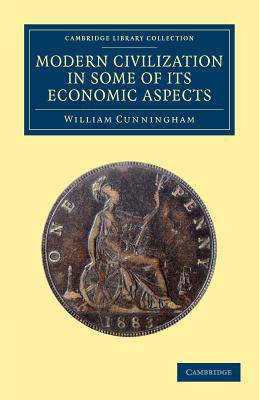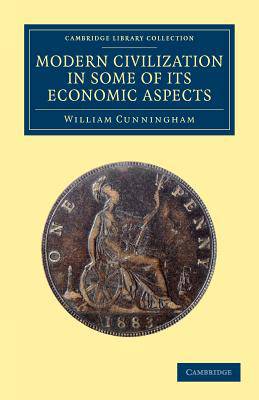
- Afhalen na 1 uur in een winkel met voorraad
- Gratis thuislevering in België vanaf € 30
- Ruim aanbod met 7 miljoen producten
- Afhalen na 1 uur in een winkel met voorraad
- Gratis thuislevering in België vanaf € 30
- Ruim aanbod met 7 miljoen producten
Zoeken
Omschrijving
Renowned economic historian and clergyman William Cunningham (1849-1919) published this work in 1896, which is considered a companion volume to his seminal Essay on Western Civilisation. Educated at Edinburgh, Cambridge and Tübingen, Cunningham wrote widely on theology and economics. He was a Cambridge lecturer and fellow at Trinity, Professor of Economics at King's College London, a teacher at Harvard, a founding fellow of the British Academy, and President of the Royal Historical Society. Favouring historical empiricism over deductive theory, his work, labelled neo-mercantilist, was against laissez-faire and favoured economic regulation, social religion, and conservative incremental change. This book outlines these views as part of an analysis of the basic units of economic life - exchange, possessions, money, credit, selling, price, labour, trade, profit, interest, rent, wages - and how these interact within capitalism. The work strongly influenced contemporary thought and remains relevant in the historiography of economics.
Specificaties
Betrokkenen
- Auteur(s):
- Uitgeverij:
Inhoud
- Aantal bladzijden:
- 236
- Taal:
- Engels
- Reeks:
Eigenschappen
- Productcode (EAN):
- 9781108053051
- Verschijningsdatum:
- 2/08/2012
- Uitvoering:
- Paperback
- Formaat:
- Trade paperback (VS)
- Afmetingen:
- 140 mm x 216 mm
- Gewicht:
- 303 g

Alleen bij Standaard Boekhandel
+ 115 punten op je klantenkaart van Standaard Boekhandel
Beoordelingen
We publiceren alleen reviews die voldoen aan de voorwaarden voor reviews. Bekijk onze voorwaarden voor reviews.











